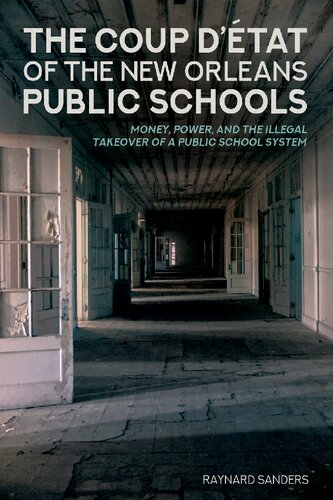

Most ebook files are in PDF format, so you can easily read them using various software such as Foxit Reader or directly on the Google Chrome browser.
Some ebook files are released by publishers in other formats such as .awz, .mobi, .epub, .fb2, etc. You may need to install specific software to read these formats on mobile/PC, such as Calibre.
Please read the tutorial at this link: https://ebookbell.com/faq
We offer FREE conversion to the popular formats you request; however, this may take some time. Therefore, right after payment, please email us, and we will try to provide the service as quickly as possible.
For some exceptional file formats or broken links (if any), please refrain from opening any disputes. Instead, email us first, and we will try to assist within a maximum of 6 hours.
EbookBell Team

4.4
12 reviewsThe Coup D’état of the New Orleans Public Schools explores and criticizes the contemporary educational reforms of the New Orleans public school system. The New Orleans education reforms implemented after Hurricane Katrina, using the corporate model approach, have been an academic failure with charter operators making millions of dollars while reestablishing a segregated school system based on race and class―all in the name of school reform. Despite the claims of unprecedented academic success the educational reforms have been a dismal failure academically and operationally, and have resurrected equity and access issues. Equally as disturbing the reforms firmly have re-established a tiered public school system that segregates students by race and class. The Coup D’état of the New Orleans Public Schools puts the corporate education reform movement in its proper context, which is to create a new twenty-first century model for turning around urban public school districts in the United States. This book reveals what really happened pre- and post-Hurricane Katrina that contributed to the state takeover of public schools in New Orleans. This story is told through the eyes of parents, students, activists, political leaders, and Orleans Parish School Board members and employees who have been largely ignored. It also includes an analysis of the author’s personal experience of almost forty years in New Orleans public schools as a teacher, principal, and college professor.